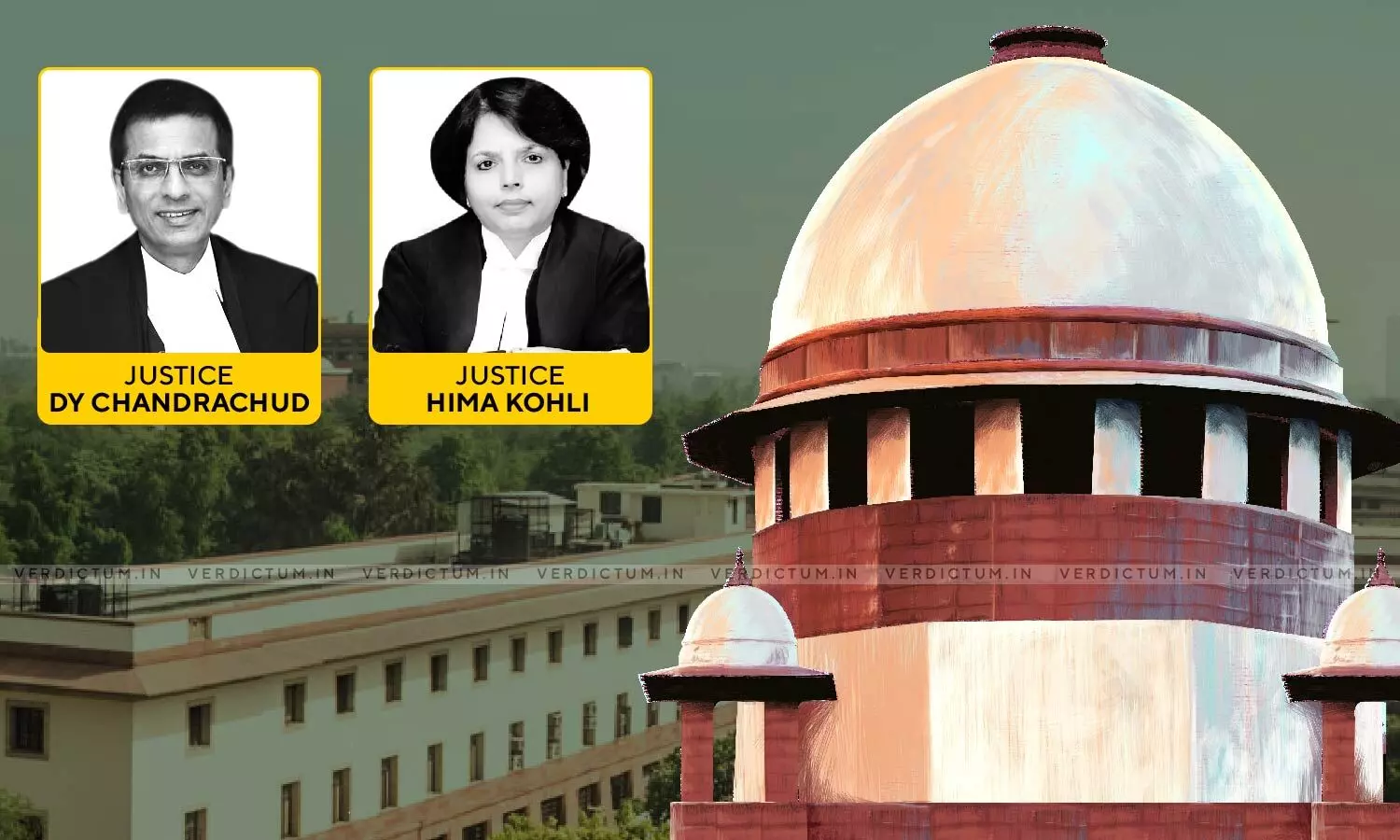
Sealed Cover Procedure Sets As Dangerous Precedent, Makes Adjudication Vague & Opaque: Supreme Court
 |
|The Supreme Court has observed that sealed cover procedure sets a 'dangerous precedent' as it makes 'the process of adjudication vague and opaque.
The Court held, "The non-disclosure of relevant material to the affected party and its disclosure in a sealed-cover to the adjudicating authority (in this case the AFT) sets a dangerous precedent. The disclosure of relevant material to the adjudicating authority in a sealed cover makes the process of adjudication vague and opaque."
The Bench of Justice DY Chandrachud and Justice Hima Kohli observed that "A judicial order accompanied by reasons is the hallmark of the justice system. . A judicial order accompanied by reasons is the hallmark of the justice system. It espouses the rule of law. However, the sealed cover practice places the process by which the decision is arrived beyond scrutiny. The sealed cover procedure affects the functioning of the justice delivery system both at an individual case- to case level and at an institutional level."
In this case, the AFT had dismissed the applications challenging the denial of Permanent Commission (PC) in the Indian Navy holding that there was no gender bias or mala-fide in the grant of PC and that the officers were not granted PC because of their comparative merit against limited vacancies.
The issue dealt with by the Court was whether the AFT could have adjudicated the validity of the selection proceedings when relevant material was disclosed only to the AFT in a sealed cover.
Senior Advocates Huzefa A Ahmadi and C U Singh appeared on behalf of the appellants and submitted that the AFT relied upon material which was submitted by the Naval Authorities in a sealed cover and that this material was never disclosed to the appellants, therefore, material prejudice has been caused by the process which has been followed of disclosing the information of vacancies and the board proceedings to the AFT in a sealed cover.
Senior Advocate R. Balasubramaniam appeared on behalf of the respondent and submitted that it is a norm of the Board Proceedings that information is provided to AFT in sealed cover only.
The Court allowing the appeal referred to its earlier decisions in T. Takano v. Securities and Exchange Board of India Civil Appeal Nos. 487-488 of 2022, Khudiram Das v. State of West Bengal (1975) 2 SCC 81 and observed that "The elementary principle of law is that all material which is relied upon by either party in the course of a judicial proceeding must be disclosed. Even if the adjudicating authority does not rely on the material while arriving at a finding, information that is relevant to the dispute, which would with 'reasonable probability' influence the decision of the authority must be disclosed. A one-sided submission of material which forms the subject matter of adjudication to the exclusion of the other party causes a serious violation of natural justice."
The Court further observed that the disclosure in a sealed cover perpetuates two problems-
Firstly, it denies the aggrieved party their legal right to effectively challenge an order since the adjudication of issues has proceeded based on unshared material provided in a sealed cover. The adjudicating authority while on material furnished in the sealed cover arrives at a finding which is then effectively placed beyond the reach of challenge.
Secondly, it perpetuates a culture of opaqueness and secrecy. It bestows absolute power in the hands of the adjudicating authority. It also tilts the balance of power in a litigation in favour of a dominant party which has control over information.
The Court also expressed that "the exceptions should not, however, become the norm", i.e., to say that not all information must be disclosed in the public.
Accordingly, the Court allowed the appeals and remanded the matter back to the AFT for fresh consideration.
cause title- Cdr Amit Kumar Sharma etc Vs Union of India & Ors etc
Click here to read/download the Judgment